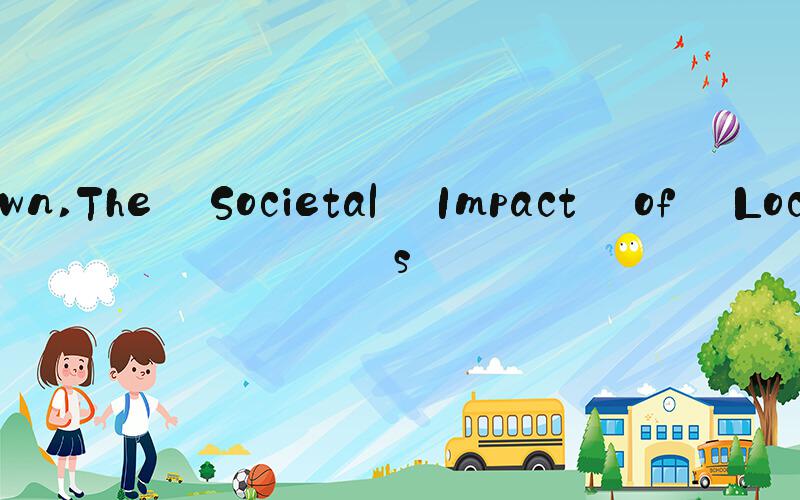
 Lockdown: The New Normal
Lockdown: The New NormalThe concept of lockdown was once a relatively unknown term, reserved for emergencies such as terrorist attacks or other extreme situations. However, with the outbreak of COVID-19 in early 2020, the term quickly became a part of everyday vocabulary, as governments around the world scrambled to contain the spread of the virus. Lockdowns, defined as measures taken to restrict people's movements and interactions, have become the new normal. In this article, we will explore the effects of lockdown measures on society, the economy, and the individual.
The Societal Impact of LockdownsOne of the most immediate impacts of lockdowns has been on society as a whole. With schools and businesses shut down, people have been forced to spend more time at home. This has led to increased feelings of social isolation, as people have been unable to meet with friends and family in person. Mental health issues such as depression and anxiety have also been on the rise, as people struggle to cope with the stress and uncertainty of the pandemic.
Another societal impact of lockdowns has been on our ability to socialize and connect with others. Forced to rely on technology for communication, we have had to adapt to a new way of interacting with others. While this has enabled us to stay connected with loved ones, it has also highlighted the need for human interaction and physical connection. As the lockdowns continue and the pandemic drags on, it is important to find safe ways to connect with others and mitigate the negative effects of social isolation.
The Economic Impact of LockdownsThe economic impact of lockdowns has been severe, with businesses around the world struggling to stay afloat. Lockdown measures have forced many businesses to close their doors permanently, with small businesses being hit particularly hard. Even larger companies have had to lay off workers and cut back on expenses, as demand for their products and services dwindles.
The impact of lockdowns on the workforce has also been significant. Millions of people have lost their jobs or had their hours reduced, leading to financial hardship and uncertainty. For those who are still employed, their work has often shifted to remote or online formats, leading to challenges in juggling work and home responsibilities.
The Individual Impact of LockdownsLockdown measures have also had a significant impact on individuals, with many people struggling to adjust to this new way of life. For some, the pandemic has led to a sense of existential dread and anxiety about the future. Others may feel a sense of guilt or shame for not being able to be more productive during their time in isolation.
At the same time, lockdowns have also provided an opportunity for self-reflection and growth. With more time at home, people have had the chance to pursue hobbies, learn new skills, and focus on their personal development. While challenging, the pandemic has in some ways forced us all to slow down and take stock of what is truly important in our lives.
The Future of LockdownsAs the pandemic rages on, so too do lockdown measures. While vaccinations provide hope for a return to some semblance of normalcy, it is clear that the impact of the pandemic will be felt for years to come. The longer the lockdowns continue, the more important it becomes to find ways to cope with the challenges they present. Whether it is finding new ways to connect with others, pursuing personal development, or supporting struggling businesses and workers, it is up to all of us to work together to weather the storm.
In conclusion, lockdowns have become the new normal in our world. While they have had a significant impact on our society, economy, and individual lives, they have also provided an opportunity for reflection, growth, and resilience. As we continue to navigate this pandemic, let us remember to support one another, remain resilient, and find ways to thrive in the face of adversity.
